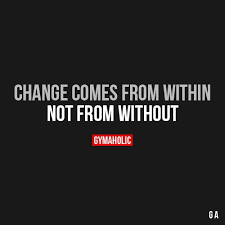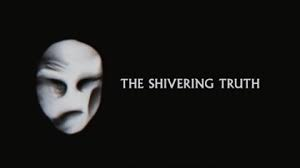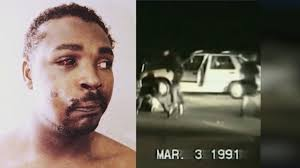Educators, like everyone else, are trying to respond to the latest protests in our country due to police brutality. Black Lives Do Matter and many of us in education have long been disturbed by the policing issues in our country.

 Can you imagine if we made it safe for students to take to the streets to protest those teachers in the system who don’t care or make any attempt to be professional? It would be powerful for sure and might be the tipping point for real education reform and removal of unfit teachers. But I don't think real change will happen until all of the good educators - the majority - demand that this bad minority doesn’t continue to infect the profession.
Can you imagine if we made it safe for students to take to the streets to protest those teachers in the system who don’t care or make any attempt to be professional? It would be powerful for sure and might be the tipping point for real education reform and removal of unfit teachers. But I don't think real change will happen until all of the good educators - the majority - demand that this bad minority doesn’t continue to infect the profession.
The Talk
Years ago, I remember an African-American friend of mine, who grew up in Los Angeles, telling me that he was told by his father as a young man how to interact with the LAPD. He was advised early on, if ever pulled over for any reason, to get on the ground and assume the prone position. This was his dad’s version of ‘The Talk’ long before it had a name or I knew anything about it.


These stories, along with the countless cases captured on video since the Rodney King case, have long informed all of us that we have a national policing crisis. I have long argued that our policing problem, bad or unfit officers, won’t be fixed until it’s fixed from the inside. In other words, the good cops, the assumed majority, need to stand up and demand change. They need to work collectively to get rid of the unfit cops in their ranks. Until they do, they, and the entire profession, is suspect...and may continue to be even under siege as different people express their outrage of the continued abuse and murder in their communities.
And as much as I want to see policing in America go through a major overhaul, I also feel like my own house is not in order. You see, in education, we have the same problem: bad teachers. Let me explain. Ultimately what bad police officers do is erode the public trust. They use their position of authority in negative ways. And in doing so, they harm the entire profession. Yes, all those good cops look bad because of the behavior of those bad cops. Teachers are the same way.
The Terrible
Anyone in education, along with most stakeholders, are aware that we have bad teachers in the profession. And just like all too often in law enforcement, we protect them. Police use things like ‘Support Blue” while our system houses, keeps and even protects poor teachers. Whether it’s unions, tenure or weak leaders, it’s not acceptable.
Who are these bad teachers and what do they do? Well, if you go to almost any school in America, most know who they are. And I’m not talking ‘bad’ in terms of skill or pedagogy, but ‘bad’ in being downright horrible to kids. These are the teachers that demean, insult, bully, abuse, marginalize, ignore and damage students daily. We have teachers that don’t care, don’t work hard, don’t engage in professional learning, and generally show no interest in being an education professional.
Worse yet, we are all aware. Students, parents, site leaders and teachers are all aware. As educators, we cannot afford to be complicit. There is room to discuss and debate curriculum, instruction, technology and assessments. But there is no room to debate laziness, unprofessionalism, student disrespect and apathy.
The Trot
Over 10 years ago, the groundbreaking film Waiting For Superman educated us about the ‘Lemon Dance’ or ‘Turkey Trot’ - euphemisms for how schools swapping their worst-performing teachers at the end of the year on the bet that their lemon isn't as bad as another. This is a common practice and is the collective complicity we in education are all part of for sure.


After the recent case of police brutality and bad cops being bad in the death of George Floyd, millions of citizens have taken to the streets in protest. This has happened before. Maybe this time will be different. We don’t know. However, we are finally hearing a new cry about reform - and now coming from the inside. That’s right. More and more police officers and leaders are beginning to not only acknowledge the problem, but demand that they have to be the ones that lead the changes.
The Truth
When a bad cop emerges or becomes known, colleagues have to - for the sake of the public and the sanctity of their profession - take charge and remove that anomaly from the profession.
Education has the same challenge. We have tried to address bad teachers through systems of evaluation, professional development and support. That hasn’t worked. This will be a heavy lift. I have known individual teachers who have expressed concerns about incompetent or dangerous colleagues in their ranks. But one teacher cannot fix another bad teacher. The entire collective community has to stand up. If there is a teacher who is truly unfit and unacceptable to be around kids, every member of the staff will have to demand removal.
Years ago, I remember an African-American friend of mine, who grew up in Los Angeles, telling me that he was told by his father as a young man how to interact with the LAPD. He was advised early on, if ever pulled over for any reason, to get on the ground and assume the prone position. This was his dad’s version of ‘The Talk’ long before it had a name or I knew anything about it.
These stories, along with the countless cases captured on video since the Rodney King case, have long informed all of us that we have a national policing crisis. I have long argued that our policing problem, bad or unfit officers, won’t be fixed until it’s fixed from the inside. In other words, the good cops, the assumed majority, need to stand up and demand change. They need to work collectively to get rid of the unfit cops in their ranks. Until they do, they, and the entire profession, is suspect...and may continue to be even under siege as different people express their outrage of the continued abuse and murder in their communities.
And as much as I want to see policing in America go through a major overhaul, I also feel like my own house is not in order. You see, in education, we have the same problem: bad teachers. Let me explain. Ultimately what bad police officers do is erode the public trust. They use their position of authority in negative ways. And in doing so, they harm the entire profession. Yes, all those good cops look bad because of the behavior of those bad cops. Teachers are the same way.
The Terrible
Anyone in education, along with most stakeholders, are aware that we have bad teachers in the profession. And just like all too often in law enforcement, we protect them. Police use things like ‘Support Blue” while our system houses, keeps and even protects poor teachers. Whether it’s unions, tenure or weak leaders, it’s not acceptable.
Who are these bad teachers and what do they do? Well, if you go to almost any school in America, most know who they are. And I’m not talking ‘bad’ in terms of skill or pedagogy, but ‘bad’ in being downright horrible to kids. These are the teachers that demean, insult, bully, abuse, marginalize, ignore and damage students daily. We have teachers that don’t care, don’t work hard, don’t engage in professional learning, and generally show no interest in being an education professional.
Worse yet, we are all aware. Students, parents, site leaders and teachers are all aware. As educators, we cannot afford to be complicit. There is room to discuss and debate curriculum, instruction, technology and assessments. But there is no room to debate laziness, unprofessionalism, student disrespect and apathy.
The Trot
Over 10 years ago, the groundbreaking film Waiting For Superman educated us about the ‘Lemon Dance’ or ‘Turkey Trot’ - euphemisms for how schools swapping their worst-performing teachers at the end of the year on the bet that their lemon isn't as bad as another. This is a common practice and is the collective complicity we in education are all part of for sure.
After the recent case of police brutality and bad cops being bad in the death of George Floyd, millions of citizens have taken to the streets in protest. This has happened before. Maybe this time will be different. We don’t know. However, we are finally hearing a new cry about reform - and now coming from the inside. That’s right. More and more police officers and leaders are beginning to not only acknowledge the problem, but demand that they have to be the ones that lead the changes.
The Truth
When a bad cop emerges or becomes known, colleagues have to - for the sake of the public and the sanctity of their profession - take charge and remove that anomaly from the profession.
Education has the same challenge. We have tried to address bad teachers through systems of evaluation, professional development and support. That hasn’t worked. This will be a heavy lift. I have known individual teachers who have expressed concerns about incompetent or dangerous colleagues in their ranks. But one teacher cannot fix another bad teacher. The entire collective community has to stand up. If there is a teacher who is truly unfit and unacceptable to be around kids, every member of the staff will have to demand removal.
Comments
Post a Comment